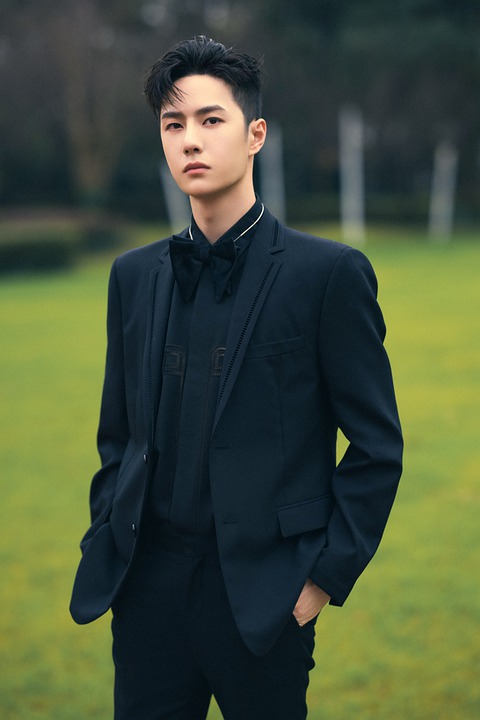China, Country of Macho Men
On September 2nd, the Chinese Communist Party announced a new rule that bans the appearance of “Niang paos,” a Chinese derogatory slur that means “girly girls,” or “sissy men.” These men were deemed too effeminate for China’s television shows and video streaming sites. According to The Conversation, the Chinese government imposed this new rule in hopes of reshaping the societal standards of men back to a more traditional and masculine style. A TV regulator from the National Radio and TV Administration stated that broadcasters must “resolutely put an end to sissy men’ and other abnormal esthetics” to promote a “revolutionary culture” by tightening control over male celebrities. Chinese authorities state that they intend to rule out “morally flawed celebrities” and deem those with excessive makeup and wardrobes as individuals who are setting immoral standards for the future generation of Chinese males.
The popularity of “effeminate” male celebrities started to rise in the mid-2010s when the Chinese regulation over their entertainment industry began to loosen. As television shows, dramas, talent shows, and other productions of privately-owned tech companies started gaining more and more attention, ratings of state-owned TV stations gradually plummeted. The gain in popularity of K-POP idols with “feminine” features such as the appliance of make-up and crop tops also led to the rise in popularity of Chinese idols with “feminine” styles. For instance, Chinese audition shows that produce male idols such as “The Coming One” and “CHUANG 2021” streamed through a popular streaming service called the “Tencent Video” attracted millions of viewers around the world. These programs were modeled after famous Korean idol audition shows such as “Produce 101”, in which many idol trainees from all around the world audition through different stage performances and are voted by the viewers to form an idol group. Increasing popularity in these shows spiked concerns in the Chinese government, and President Xi Jinping demonstrated his concern that Chinese men are losing their “masculinity” and also declared to shift focus on censorship in order to “promote excellent Chinese traditional culture, revolutionary culture, and advanced socialist culture” instead of “vulgar internet celebrities,” according to NPR. The ban of “effeminate” celebrities is only one part of the bigger picture of the “national rejuvenation” along with the tightening of control over China’s businesses, religion, culture, and education.
The ban on these feminine male celebrities was proposed by Si Zefu, a top political advisor. According to Si, “Chinese boys have been spoiled by housewives and female teachers” and a non-conformist ideology “threatens China’s survival and development.” The belief that Chinese boys are being “feminized” has been a concern to many Chinese officials. To counter this new so-called threat, all-boys schools have been promoted to provide learning environments in which traditional Chinese ideals will be forced on young boys. According to Time Magazine, The Chinese Academy of Social Sciences is accusing a Japanese company that produced many famous Japanese male idols, Johnny & Associates Agency, for being the root cause of promoting this “defeminization” in men. Johnny & Associates Agency has produced many “soushokukei danshi” meaning “herbivores type men” who typically do not seek women as partners and shift their focus on makeup and clothing, thereby dissociating with the traditional stereotype of men. Chinese government officials have been concerned with the social impact of “xiao xian rou” (“little fresh meat”) for promoting skinny and pretty boys. These types of men are considered attractive to many women, which is further causing young Chinese boys to be inspired by these “effeminate” styles.
In addition to restrictions on “effeminate men,” the Chinese government took further steps to promote “masculinity” to male citizens. For example, according to Time Magazine, more gym teachers are hired in schools, and the promotion of sports has been increased. The restriction of the Chinese government on the entertainment industry has also strengthened in recent years. The Weibo Corp, a popular microblog platform, banned thousands of fan accounts for celebrities and entertainment news pieces on their platform to prevent “celebrity” culture from taking over Chinese youth. Additionally, a popular Chinese actress, Zhao Wei, has mysteriously vanished from the entertainment industry, and her name is no longer listed for credits in movies she has starred in. Censorship in the entertainment industry has been happening before the rules of “effeminate men,” however. For instance, any scenes including two males holding hands were banned, and any images of earrings and dyed hair on men were blurred. The Chinese government’s strict censorship has been infuriating the LGBTQ community, as these rules are enforcing “traditional” male and female stereotypes on Chinese people, thereby limiting one’s freedom to express themselves individualistically.






